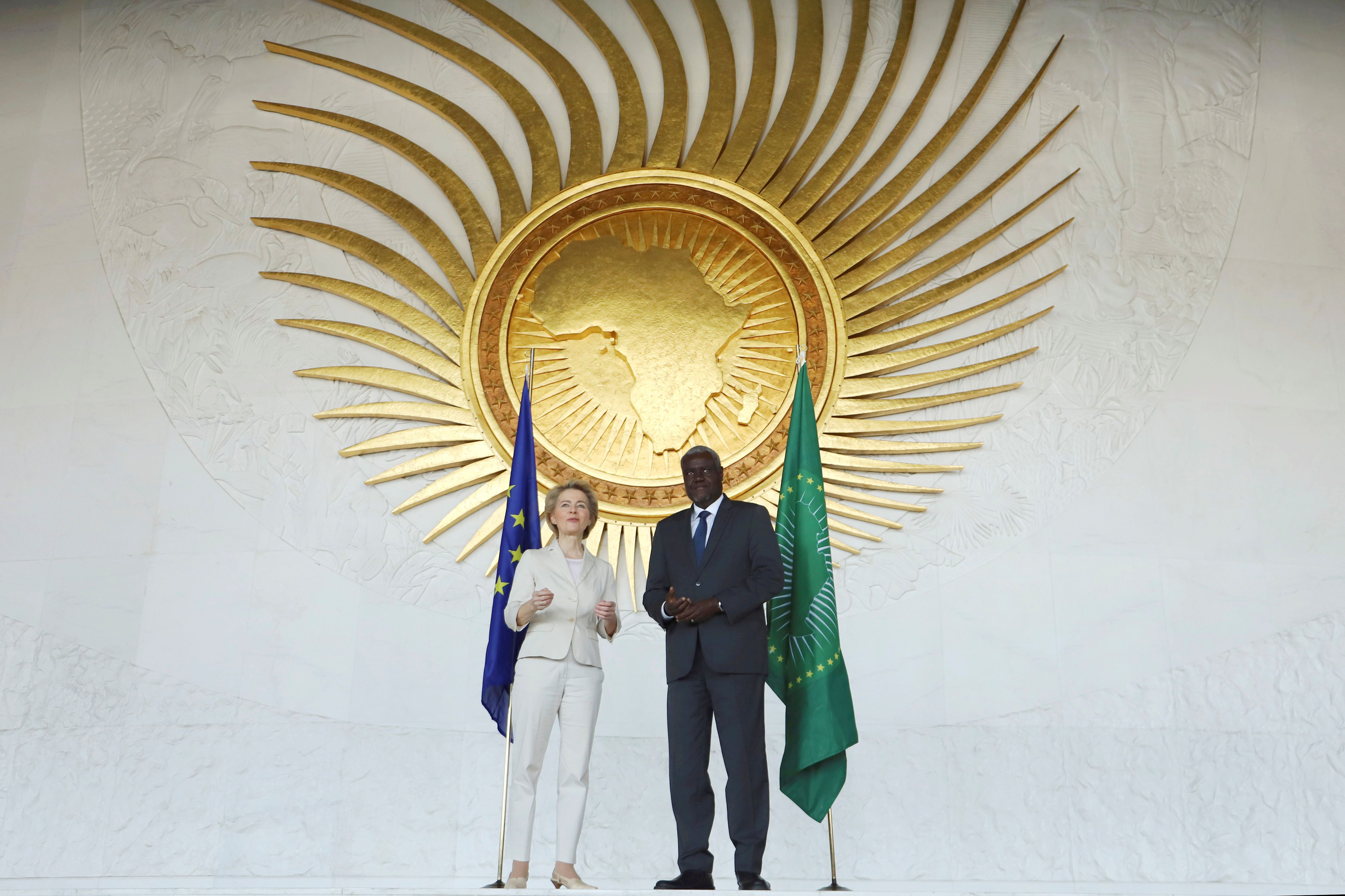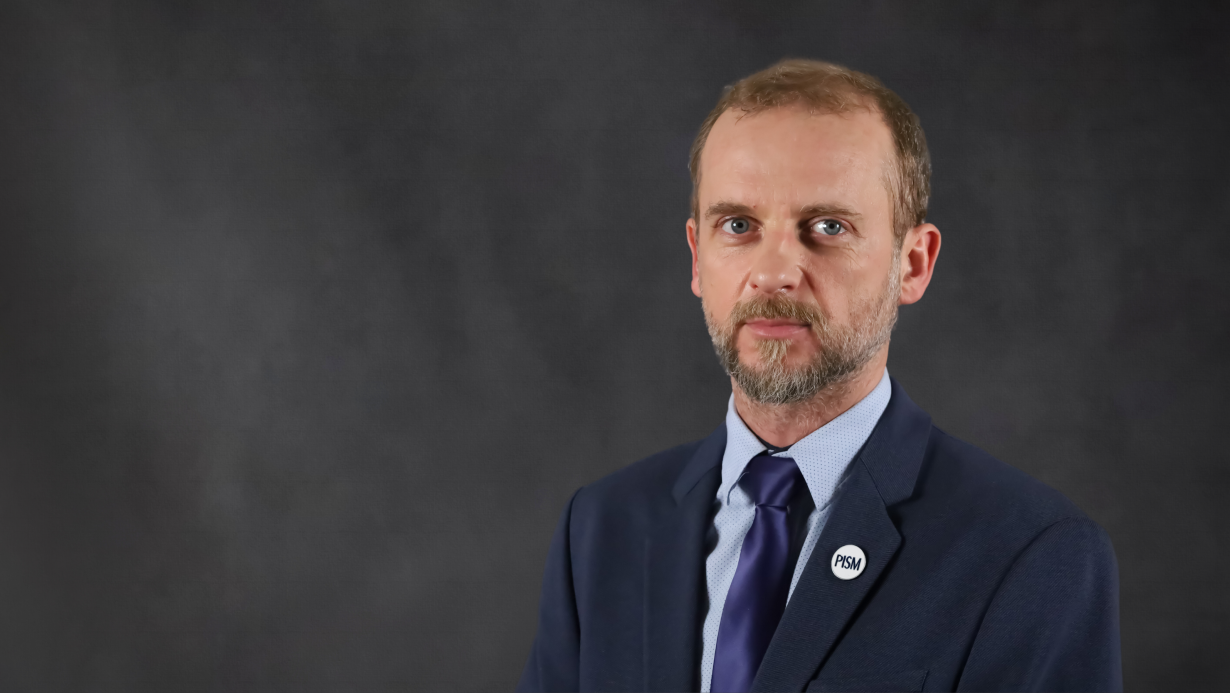Africa in EU Policy: Old Challenges Hamper a New Partnership

Partnership of Equals?
The current European Commission (EC), established in December 2019, has made strengthening cooperation with Africa a priority in its external actions. An African country was the first foreign travel destination for new EC President Ursula von der Leyen. In February, EU Council President Charles Michel and most of the Commissioners also visited the continent. The EU declares that it will move away from the donor-recipient aid approach towards building a “partnership of equals” based on common interests.
On 9 March, the EC outlined a draft new strategy for cooperation with Africa based on five partnerships: green transformation and energy access; digital transformation; sustainable growth and jobs; peace and governance; and, migration and mobility. For its part, the EU Council adopted on 30 June its Conclusions on Africa, in which it called for, among others, strengthening multilateralism, security and stability, and economic growth in Africa. Both proposals form the basis of the European framework of work on a joint document that will replace the current strategy from 2007. It had been planned to be developed and then adopted at the 6th EU-AU summit in Brussels on 28–29 October, but due to the postponement of the summit to next year because of the COVID-19 pandemic, reflection on the directions of cooperation and the document itself will continue.
Importance of Africa for the EU
The high place assigned to Africa results from the continent’s importance to the Union’s security and economic and migration interests. Africa’s geographical proximity and security threats (wars, terrorism, trafficking in weapons, human beings, and drugs) have a direct and negative impact on the EU. Africa is an attractive market, a source of raw materials, and an investment destination, especially as the Union aims at diversifying global supply chains between China and Europe. However, overall trade is modest: in 2019, Africa accounted for only 6.8% of EU27 exports (€145 billion) and just 7% of imports (€136 billion). By 2050, Africa’s population is expected to double to 2.5 billion people. This will increase migration pressure, but it will also allow the EU to replenish the demand for workers in ageing societies. In a political sense, the common positions of the 27 EU members and 54 AU countries on issues such as climate policies could shape global solutions and standards. However, it becomes all the more difficult with the growing influence of third countries, mainly China, India, Turkey, Russia, and Arab states, on the continent.
Unresolved Issues
This year’s EU proposals leave a number of existing problems in mutual relations unresolved. Despite declarations about a “partnership of equals”, the relations remain asymmetrical. The differences in priorities and perspectives are visible in several areas. The EU Communication on the strategy from March, which emphasized “soft” issues (climate, digitisation), was not well-received in Africa where security and economic development, as presented in 2015 in the AU’s Agenda 2063 strategy, remain central. The AU counts on the continuation of strong EU support for the strategy’s implementation. Meanwhile, in the EU’s Multiannual Financial Framework adopted in July, planned expenditure on development aid decreased by €4.7 billion (to €98.4 billion, including €26 billion for Sub-Saharan Africa) in relation to the EC proposal from 2018. In response to the pandemic, the EU in April announced a moratorium on debt repayments from 77 of the poorest countries, mostly from Africa. It also offered more than €15 billion to developing countries, but the funds were diverted from existing programmes.
The EU conducts military and civilian missions in Africa at the invitation of selected states and finances AU peacekeeping operations (€3.4 billion for the African Peace Facility from 2004). However, it happens that the security policies of the EU or Member States do not take into account the preferences of African countries, for example, political attempts at conflict resolution, when military measures—as in Mali—are ineffective.
The partners differ in their assessment of the directions of regional integration and development. The AU sees opportunities for economic growth in better cooperation within the African Continental Free Trade Area (AfCFTA) established in 2019. Although the EU declares support for this project, it promotes the still ineffective Economic Partnership Agreements (EPAs) with given regions, criticised in Africa as perpetuating the advantages of European companies and hindering the integration of the continent. A constant point of contention is also the EU’s Common Agricultural Policy, which hinders access to the EU market for African agricultural products and facilitates subsidised exports of European products to Africa.
The EU’s goals to stop irregular migration from Africa do not always coincide with the interests of the migrants’ countries of origin, which benefit from it, for example, through remittances ($48 billion in 2019). Getting African partners to cooperate better on readmission may require a real increase in the availability of legal migration from Africa, which many EU countries are not ready for. Also, the new proposal of the Pact on Migration and Asylum from September does not contain clear declarations on legal migration. Moreover, the EU’s emphasis on strengthening border controls limits intra-African mobility and, for example, in the Sahel, may increase migration pressure on Europe in the long term.
While both sides agree on the urgency to respond to the climate crisis, the EU stresses mitigation, while for Africa, adapting to climate change is a greater challenge. The African partners also fear that the European Green Deal promoted in the EU—unless it contains additional sources of financing for the energy transformation in Africa—may in fact raise new barriers to the European market (e.g., in the form of a carbon tax).
The EU and African countries also differ in assessments of the impact of the greater role of third countries. Although the EU, for example, warns its African partners of the potential of a debt trap involving China, many of them treat the latter as more attractive than the EU as a source of support, for example, in the development of neglected infrastructure. Where the EU sees the threat of Russian influence on the quality of government, African states count, for example, on the benefits of developing nuclear energy proposed by Rosatom, the Russian state firm.
Conclusions
A strong partnership with Africa is in the EU’s interests, because it is economically beneficial and improves security and migration control. It would be worthwhile for the EU to use the time gained by postponing the summit to increase its partners’ confidence. For the EU to cooperate effectively, it must take greater account of the perspectives and interests of African countries in developing a joint strategy. Instead of pushing through EPAs, unpopular in Africa as they limit the development of domestic trade, it is worth consistently supporting the implementation of AfCFTA and preparing for negotiations of an EU-AU intercontinental trade agreement. Cooperation could be improved also by adopting annual quotas for legal migration from Africa to the EU, based on voluntary limits set by the Member States. The EU may also develop a model of cooperation with third countries in Africa using the specialisation of entities (e.g., with India in the field of telemedicine or with Japan in strengthening resistance to natural disasters). The European Green Deal should rely more on technology transfer and financial support in Africa’s adaptation to climate change. The leading role of the AU in peace and security on the continent should be recognised and supported.
The recovery of economies after the COVID-19 pandemic offers an opportunity to strengthen trust and cooperation. By cancelling debts, largely constituting the costs of servicing old liabilities, the EU would positively distinguish itself from, for example, China, which is criticized for deliberately trapping the countries of the continent with loans. Both Africa and the EU can benefit from shifting some of their production closer to Europe from China or fighting the practice of illegal capital diversions from Africa. A stronger EU-AU partnership is also in Poland’s interest because it can open up new economic opportunities (e.g., new export markets) and facilitate cooperation in migration management.



